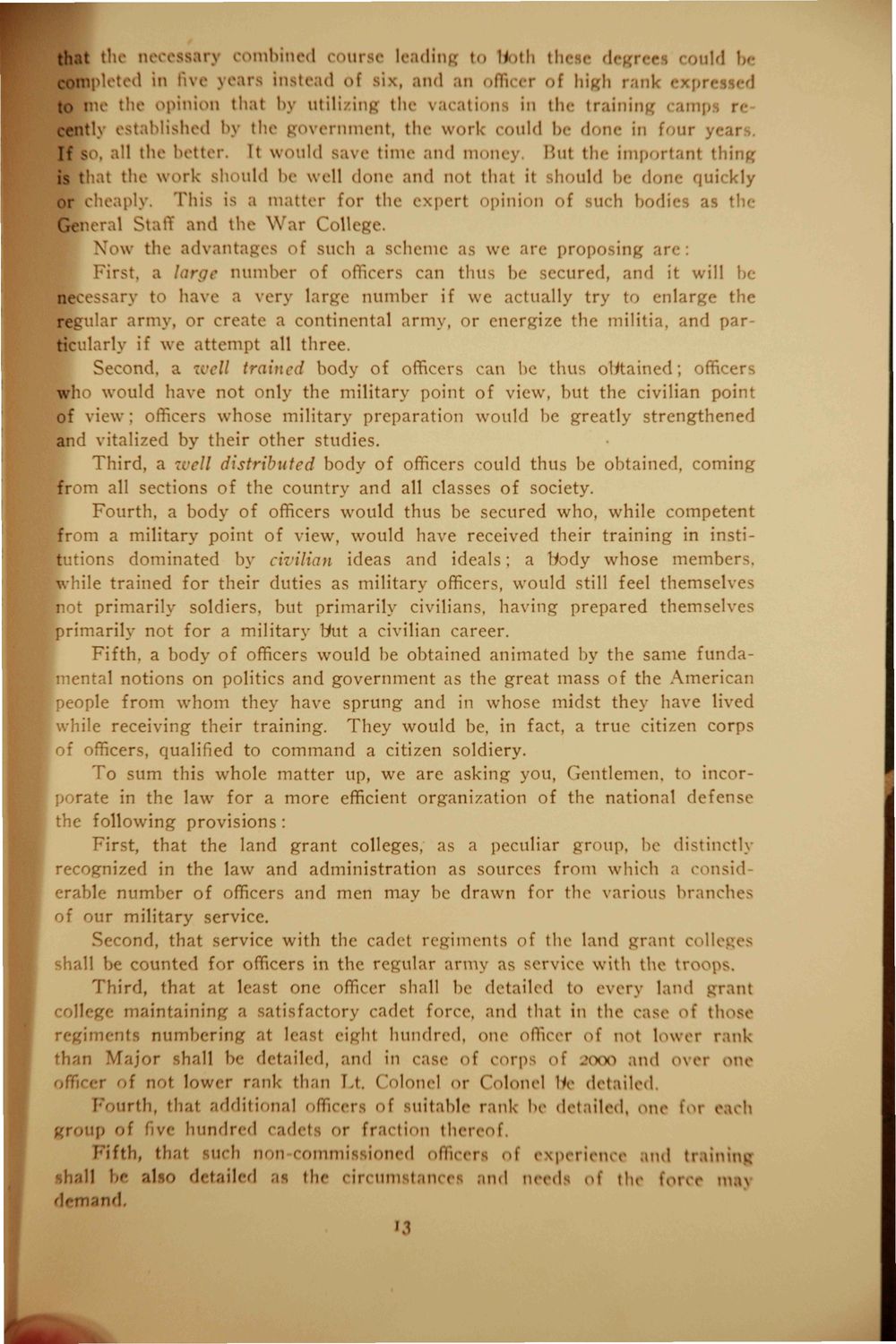| |
| |
Caption: Booklet - Military Training in our Land Grant Colleges (1916)
This is a reduced-resolution page image for fast online browsing.

EXTRACTED TEXT FROM PAGE:
that the neccssarj combined course leading to \i<>iU tli e degi > could be ompletccl in five yeara instead of six, and an officer of high rank expressed > me the opinion thai by utilizing the va< lions in the training 'amp, reently established by the government, the work could be done, in four year If s all the hetter. It would save time and money. But the important thin that the \N rk should be well done and not that it ihould I done 'junkly or cheap! This is a matter for the expert opinion of such bodi( as tl: General Staff and the W a r College. Xow the advantages of such a scheme as we are proposing are: First, a large number of officers can thus he secured, and it will 1. necessary to have a very large number if we actually try to enlarge the regular army, or create i continental army, or energize the militi and particularly if we attempt all three. Second, a well trained hody of officers can he thus o b t a i n e d ; officer who would have not only the military point of view, hut the civilian point of view : officers whose military preparation would he greatly strengthened and vitalized by their other studies. Third, a well distributed hody of officers could thus he obtained, coming from all sections of the country and all classes of society. Fourth, a body of officers would thus he secured who, while competent from a military point of view, would have received their training in institutions dominated by civilian ideas and ideals; a body whose members, while trained for their duties as military officers, would still feel themselve not primarily soldiers, but primarily civilians, having prepared themselve primarily not for a military but a civilian career. Fifth, a hodv of officers would be obtained animated by the same fundamental notions on politics and government as the great mass of the American people from whom they have sprung and in whose midst they have lived while receiving their training. They would be, in fact, a true citizen corps E officers, qualified to command a citizen soldiery. T o sum this whole m a t t e r up, we are asking you, Gentlemen, to incor,rate in the law for a more efficient organization of the national defense the following provisions : First, that the land grant colleges, as a peculiar group, be distinctly recognized in the law and administration as sources from which a consid "able number of officers and men may be drawn for the various branches f our military service. Second, that service with the cadet regiments of the land gram colleges shall be counted for officers in the regular army as service with the tn >ps. Third, that at least one officer shall be detailed to every land grant maintaining a atisfactory eadet force, and that in the case oi those entS numbering at least right hundred, one officer oi not lower rank than IVfajor shall be detailed, and in case of corps of .\W) and Over one fficer of not lower rani: than Lt. Colonel or Colonel He detailed, Fourth, thai additional offi< rs of suitable rank be detailed, one for < h roup of five hundr I cadets or fraction thereof, Fifth, that such non eomnii ioned officer! of experience and training lhall be also detailed ;is the cirCUmstanO and needs of the totce ma\ demand. i$
| |